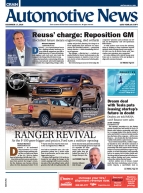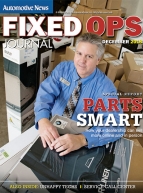There are many unhappy factions within the U.K.'s ruling Conservative Party, but the one pushing for the hardest form of Brexit from European Union membership has demonstrably shown the least knowledge of how the U.K.'s car industry works. Maybe it's political expediency, often it's pure ignorance.
Manufacturers such as Nissan, Jaguar Land Rover, Toyota, Honda, BMW and Ford have been very clear: If we're going to have Brexit, make it as soft as possible. Keep the EU's regulations, stay in the customs union to ensure a frictionless border for the thousands of parts that cross daily and keep the employment pipeline open to EU countries.
The not-so-hidden message is: Keeping legacy plants in high-wage countries like the U.K. is expensive enough, so please don't push up costs to the point we'll have to shut them down. The carmakers' idea of hell is leaving the EU with no deal in place, a very real possibility as the U.K. lurches closer to the March 29 departure date without an agreement.
The Conservative hard-nuts, however, have no problem with that. They want a clean break, so they have to dismiss the fears of the car industry. Some names will be familiar. Former Foreign Secretary Boris Johnson, a cartoonish Eton-educated toff with a loose grasp of facts, airily waved aside the problem by writing on Facebook last September: "In the next 20 years I believe traditional car companies will vanish as we switch to automated vehicles." Great insight there, Boris.
The hard-Brexiters' economic guru, a free-trade fanatic named Professor Patrick Minford, told members of Parliament back in 2012 the U.K. car industry would have to be "run down" like the coal and steel industries in a tariff-free future. Very comforting.
As for border concerns, no problem, say the hard-Brexit wing. If you remove tariffs, you also magically remove any friction. Or so declared a hard-Brexit MP called John Redwood this month. Given he also wants the U.K. to be free of EU regulations, he must have forgotten about border regulation checks. His comments showed "bewildering ignorance of the complexity of automotive supply chains," Aston Martin CEO Andy Palmer wrote on Twitter.
One of the most laughable comments came from an MP called Owen Paterson, who responded to JLR CEO Ralf Speth's warning back in July he might have to reassign £80 billion ($101 billion) of planned U.K. investment elsewhere in the event of a bad Brexit by saying that once we'd cut ties to the European Union "Jaguar Land Rover will have access to cheaper parts and components all around the world." A spokesperson for one unidentified U.K. trade association told the Guardian newspaper: "We're not going to dignify those comments with a response because they're not worth anything."


